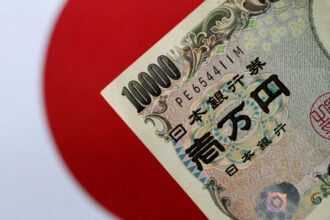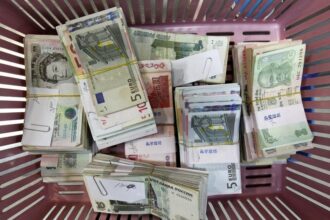The Indian rupee weakened on Tuesday, moving from its Friday close of Rs 83.04 to Rs 83.21 against the US dollar, according to Bloomberg data. This shift is largely attributed to the Federal Reserve’s hawkish outlook that has led to an increase in Treasury yields and a strengthening of the greenback.
Kunal Sodhani, a representative from Shinhan Bank, highlighted that the rising U.S. Treasury yields and political budgetary tensions are causing a disturbance in the broad-market investor sentiment. This is leading to risk-off flows into USD, which has pushed the DXY, a measure of the U.S. dollar value relative to a basket of foreign currencies, above 107 levels. This is happening despite falling prices, which typically have an inverse relationship with the strength of the dollar.
Sodhani also provided some technical analysis for the dollar/rupee pair. He identified Rs 83.10 as a support level and Rs 83.30 as immediate resistance. If the rupee continues to weaken against the dollar, he sees Rs 83.50 as further resistance. These levels provide insight into potential price movements and can guide investors in their trading decisions.
The Federal Reserve’s stance and its impact on Treasury yields and the dollar’s strength are key factors influencing currencies globally. The recent developments have put pressure on emerging market currencies like the rupee, as investors move towards safer assets like the USD amidst economic uncertainties.
This article was generated with the support of AI and reviewed by an editor. For more information see our T&C.
Read the full article here










